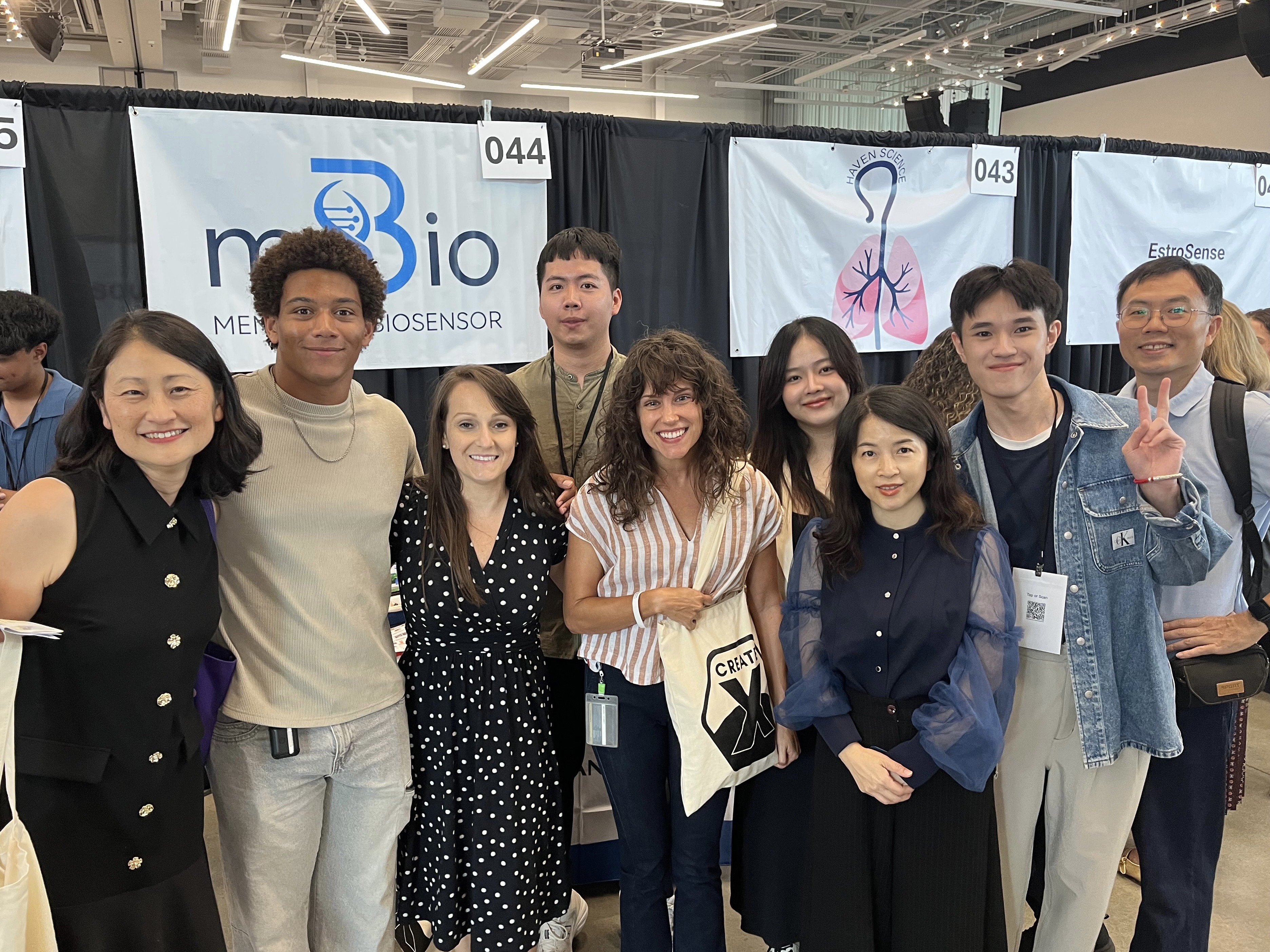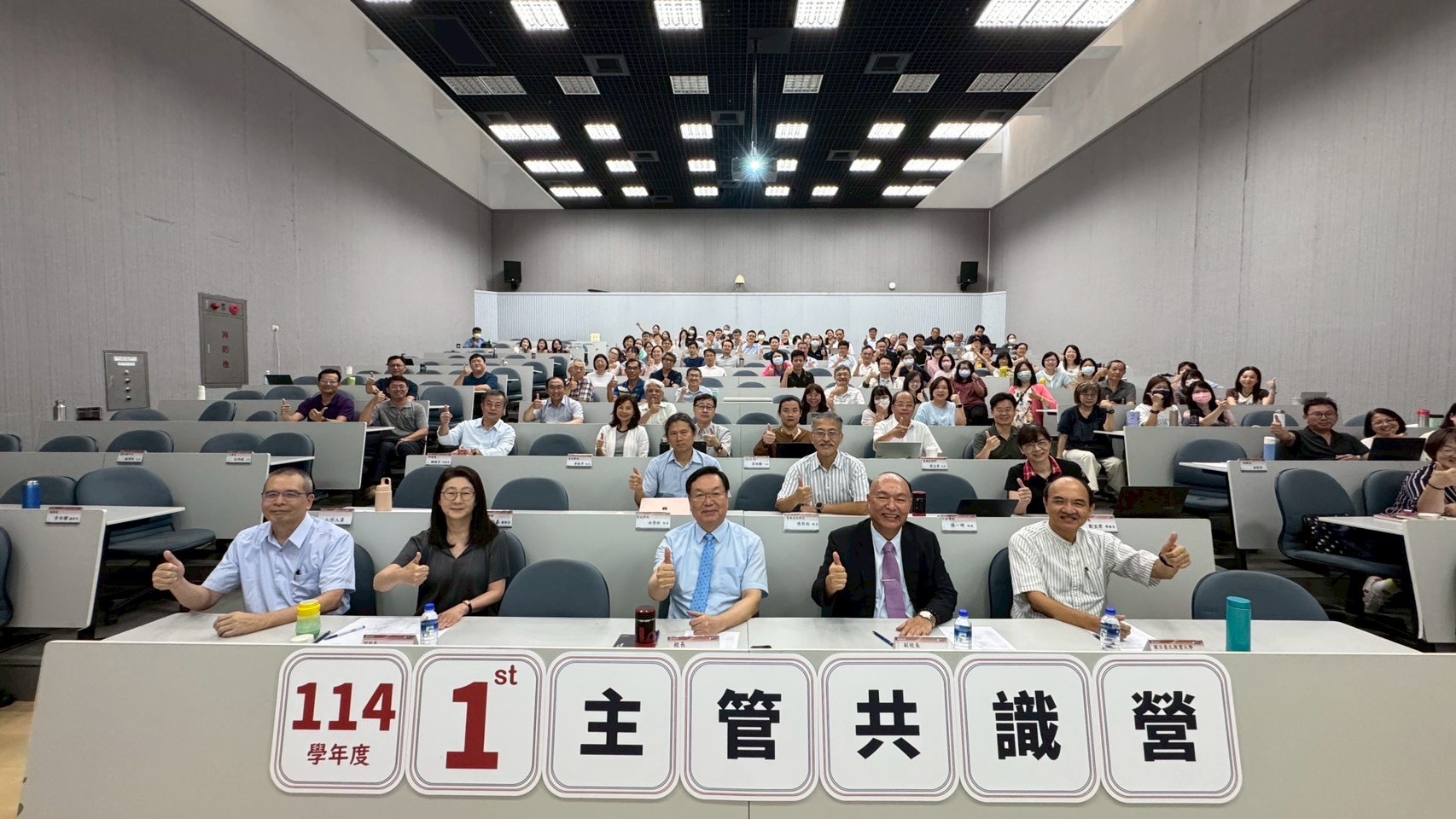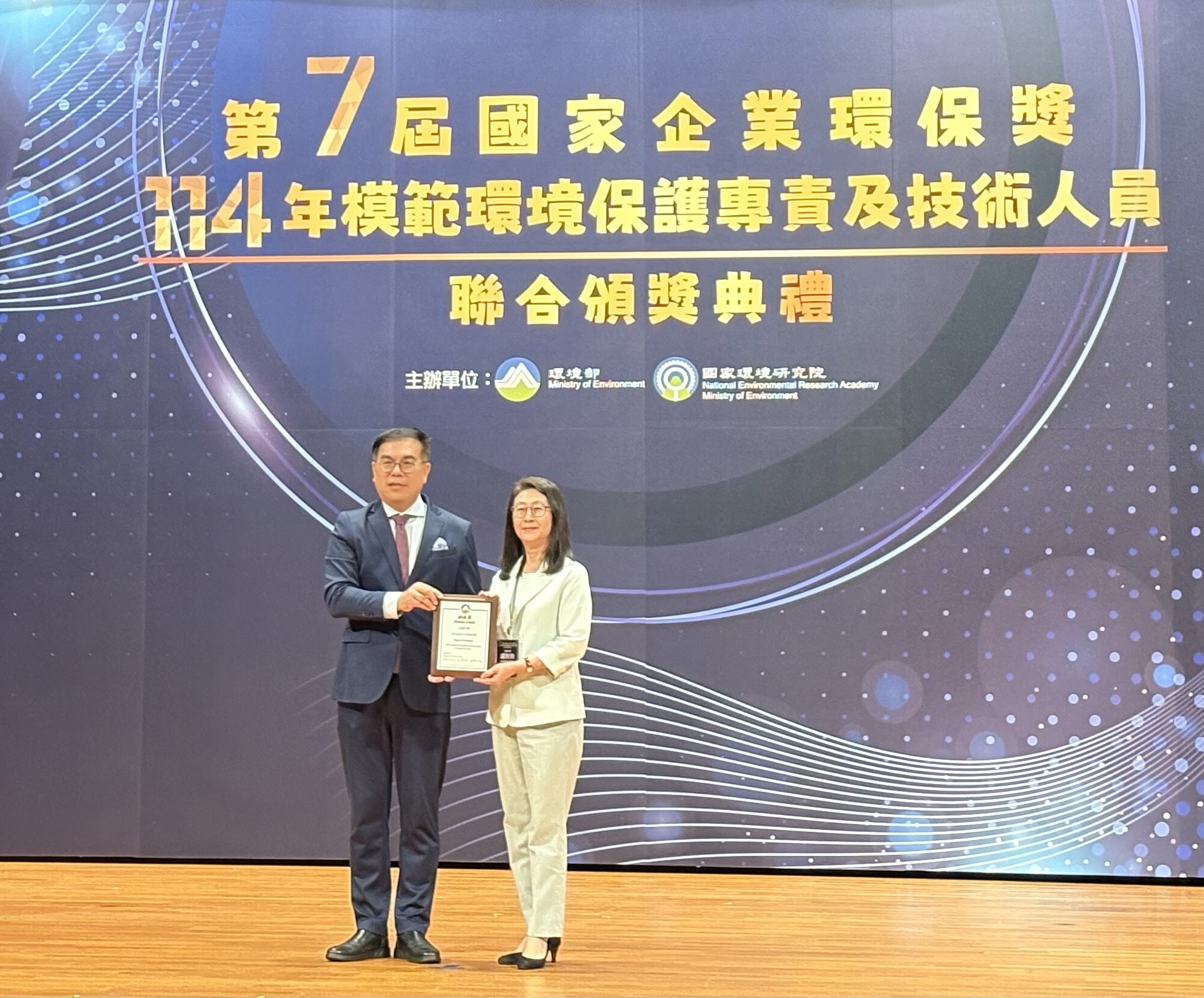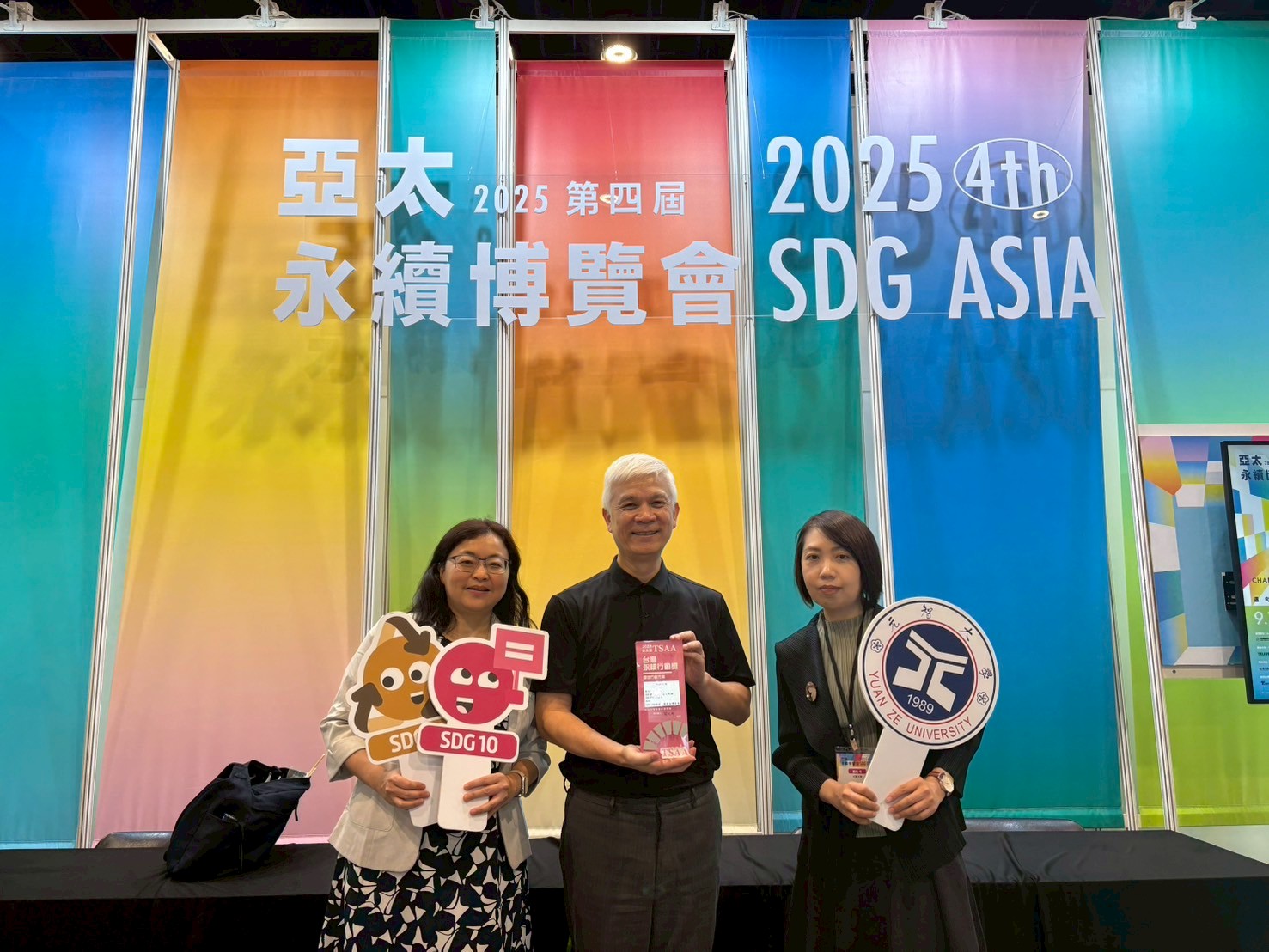Yuan Ze University’s Membrane Biosensor (mBio – Membrane Biosensor) team was invited to participate in Georgia Tech’s flagship annual startup event, CREATE-X Demo Day, where they presented their breakthrough nucleic acid detection prototype to more than 2,000 global investors, entrepreneurs, and experts.
The team had previously won first place at the 2024 Convergence Innovation Competition Asia (CIC-Asia 2024), and this time they appeared on the international stage as the representative of Asia and an honored guest, drawing significant attention from the audience.
CREATE-X, launched by Georgia Tech in 2014, had incubated more than 650 startups with a combined valuation exceeding USD 2.4 billion, and was regarded as one of the most influential university innovation platforms in the United States. The event adopted a “no-pitch-deck, fully interactive” format, requiring participating teams to engage in hours of live demonstrations and one-on-one conversations, directly facing scrutiny from the market and investors.
The Yuan Ze University team was led by Yi-Ming Sun, Dean of the College of Engineering, who directed the membrane design. Li-Fen Huang, Professor of the Graduate School of Biotechnology and Bioengineering, was responsible for gene-pairing design and validation, while Yu-Chen Chang, Professor of the Department of Chemical Engineering and Materials Science, oversaw the development of the next-generation detection device. Yi-Nan Lin, Ph.D., coordinated and executed the project. With the support of Wei-Chi Wei, Dean of the Industrial Academy, the team successfully stepped onto the international stage. Student members who joined the trip included Hsu-Hung Kuo from the Department of Chemical Engineering and Materials Science, Chia-Wei Chen from the Graduate School of Biotechnology and Bioengineering, and Jade (Yu-Yin) Tao from the English Bachelor Program in Electrical Engineering.
The team collaborated with Hsueh-Chia Chang, Professor at the University of Notre Dame, to develop a groundbreaking membrane-based nucleic acid biosensor, fully developed and manufactured in Taiwan (MIT). The innovation aimed to address the limitations of traditional diagnostic technologies that were time-consuming and costly, with potential applications in food safety, clinical medicine, and disease prevention, while aligning closely with the United Nations Sustainable Development Goals (SDGs).
At the event, the Yuan Ze team not only received enthusiastic attention from investors and experts but also gained valuable feedback. Observers noted that many successful startups shared a “platform-oriented mindset,” inspiring the team to position their technology as a scalable diagnostic platform to meet diverse testing needs.
Students reflected on the rare experience. Hsu-Hung Kuo shared that after five years of research involvement, presenting in the U.S. was both exciting and humbling, offering firsthand exposure to America’s startup energy and creativity. Chia-Wei Chen noted that engaging with nearly one hundred startup teams was eye-opening, especially learning about a project that used radar technology to help patients eat safely, which demonstrated the limitless potential of medical innovation. Jade Tao remarked that the event was not just about showcasing results, but also about seizing a precious opportunity to learn from global experts.
Professor Li-Fen Huang and Dr. Yi-Nan Lin, who accompanied the team, expressed pride in the students’ fluent English communication and their ability to demonstrate a self-built prototype. They hoped the students would continue to strengthen their international communication and practical skills, attract more venture capital and multinational collaboration, and allow Taiwan’s innovative power to shine on the global stage.
The project received research and travel funding support from the Hsu Yu-Chiang Memorial Foundation and the Hsu Yuan-Chih Memorial Foundation. Georgia Tech provided subsidies for students’ airfare, while Far Eastern New Century Corporation offered technical consultation and assistance. With these resources, the Yuan Ze University team was able to showcase Taiwan-made scientific innovation at its best on the international stage.
 English
English  正體中文
正體中文 



